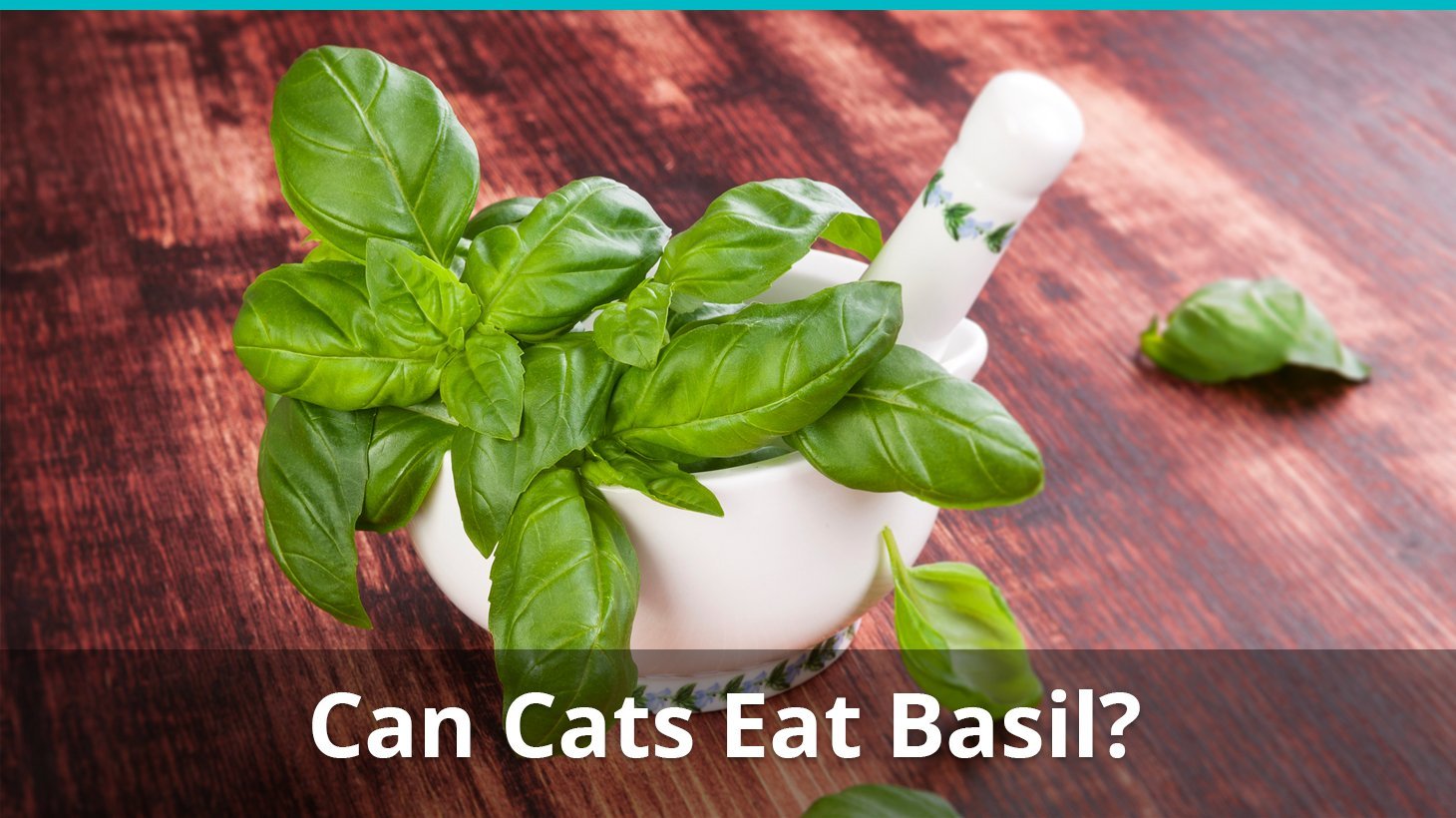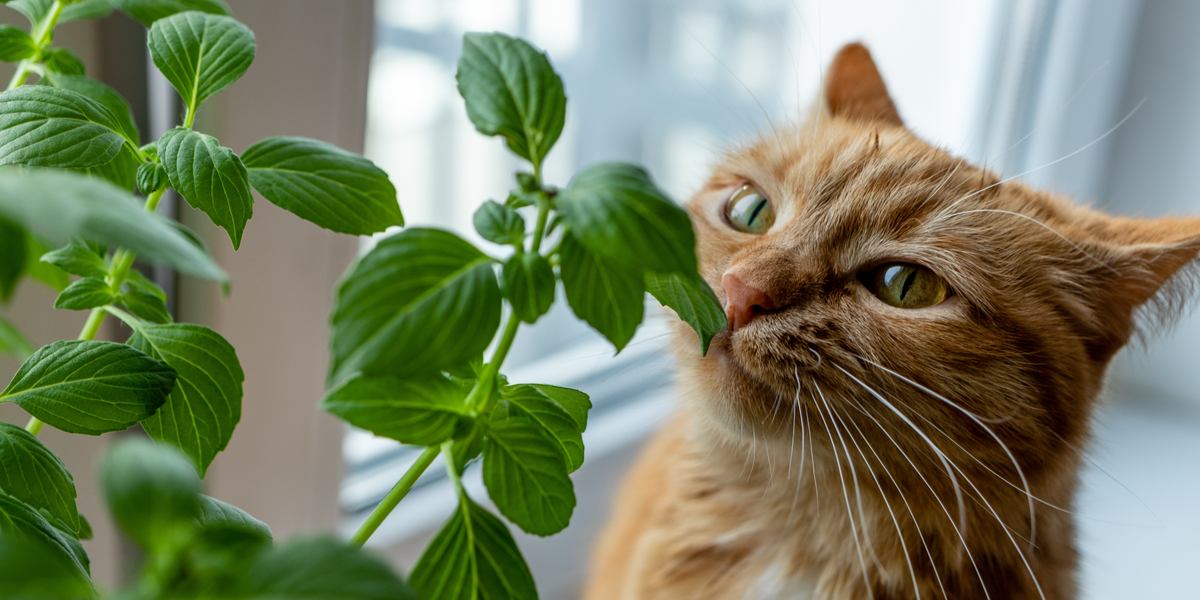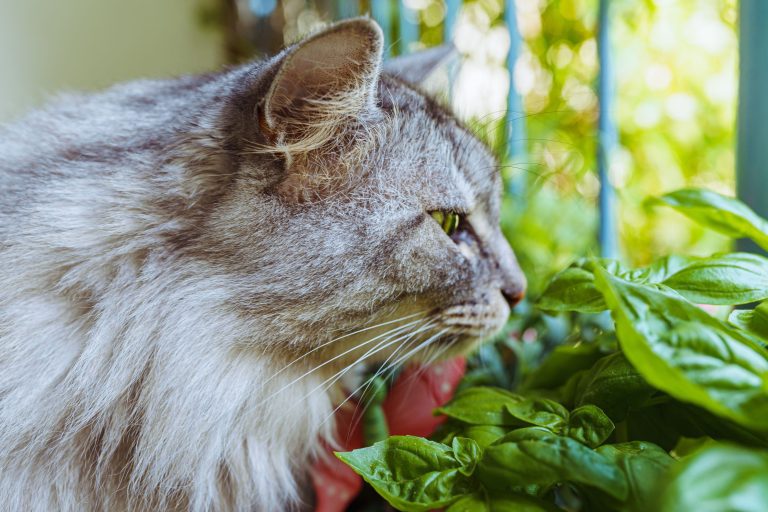Basil is safe for cats and can even provide health benefits when consumed in moderation. Basil is a popular herb widely used in cooking with a distinctive aroma and taste.
It is known for its ability to add flavour to dishes as well as its potential health benefits for humans. But what about cats? Is basil safe for our feline friends? In short, yes! Basil is safe for cats to consume in small amounts, and it can even provide specific health benefits.
However, it’s essential to note that some cats may be more sensitive to certain herbs, so it’s best to introduce basil gradually and monitor your reaction. We will explore the safety of basil for cats and how it can be incorporated into their diet.

Benefits Of Basil For Cats
Is basil safe for cats? You might wonder if you are a cat owner looking for natural remedies to improve your furry friend’s health. The good news is that basil can benefit cats in several ways. Not only does basil serve as a natural flea repellent, but it can also aid digestionLet’s explore these benefits further:
Natural Flea Repellent
Natural flea repellent for cats is a top concern for pet owners who want to avoid chemical-laden products. Basil can be a great alternative solution. The strong aroma of basil is a deterrent for fleas, keeping them away from your feline companion. Simply planting some basil in your garden or placing dried basil in strategic areas around your home can naturally repel fleas and help protect your cat from these annoying pests.
Digestive Aid
Basil can also act as a digestive aid for cats. If your furry friend is experiencing digestive issues or an occasional upset stomach, incorporating basil into their diet may provide relief. Basil contains essential oils that can help stimulate cats’ appetites and improve digestion. Additionally, these oils have antimicrobial properties that can help fight against harmful bacteria in the gastrointestinal tract.
There are different ways you can introduce basil into a cat’s diet. You can add some fresh or dried basil to their regular meals. Alternatively, you can infuse water with basil leaves and offer it to your cat as a hydrating treat. Start with small amounts and monitor the cat’s reaction to ensure they tolerate basil well.

Credit: www.catological.com
Precautions And Guidelines
Basil can be a safe herb for cats when used in moderation, but precautions must be taken. It is essential to consult with a veterinarian before introducing basil into a cat’s diet to ensure it is suitable for their specific needs and to avoid potential adverse effects.
Introducing basil to your friend’s diet can provide many health benefits. Following a few precautions and guidelines is essential to ensuring their safety. Here are three key things to keep in mind:
Introduce Basil Gradually
When introducing basil to your home, start slowly and monitor their reaction. Cats can have sensitive stomachs, so gradually introducing new food items can help prevent digestive issues. Start by offering a small amount of basil, and observe how your cat responds. You can gradually increase the amount over time without adverse reactions.
It’s important to note that some cats may not like the taste or smell of basil, which is perfectly normal. The goal is to offer it as a potential dietary supplement, not force it upon them. Watch for discomfort or allergies, such as vomiting, diarrhoea, or excessive scratching. If you notice these symptoms, discontinue feeding basil and consult your veterinarian.
Avoid Overfeeding
While basil can benefit cats in moderate amounts, avoiding overfeeding is crucial. Just like with any other food item, excessive consumption can lead to digestive issues and upset stomachs. Basil should only be used as an occasional treat or incorporated into their diet in small quantities. Strive for balance and variety in your cat’s meals to ensure they receive all the nutrients from a well-rounded diet.
Consult With A Veterinarian
Before making any significant changes, it’s always a good idea to consult a veterinarian. They can provide personalized advice based on the cat’s needs or medical conditions. The veterinarian will be able to evaluate the cat’s overall health and determine if including basil in their diet is a safe option.
Remember, every cat is unique, and what works for one may not work for another. Seeking professional guidance will give you peace of mind and ensure your cat’s safety.
Introducing basil to that cat’s diet can be a healthy addition. It’s essential to follow precautions and guidelines. Start by introducing basil gradually, monitor the cat’s reaction, and discontinue if any adverse symptoms occur. Avoid overfeeding and consult with a veterinarian to ensure the safety and well-being of your feline companion.

Frequently Asked Questions On Is Basil Safe For Cats?
Is Basil Safe For Cats?
Basil is generally safe for cats to consume in small amounts. However, it should not be given in excessive amounts, as it can cause digestive issues like vomiting and diarrhoea. It is always best to consult your veterinarian before introducing new foods to a cat’s diet to ensure their safety and well-being.
Conclusion
To sum up, while basil is generally considered safe for cats to consume in small amounts, it’s essential to be cautious and mindful of potential allergies or adverse reactions. Consulting your veterinarian is always recommended, especially if introducing a new food into a friend’s diet.
Remember, your cat’s well-being should always be a top priority regarding their dietary choices.

